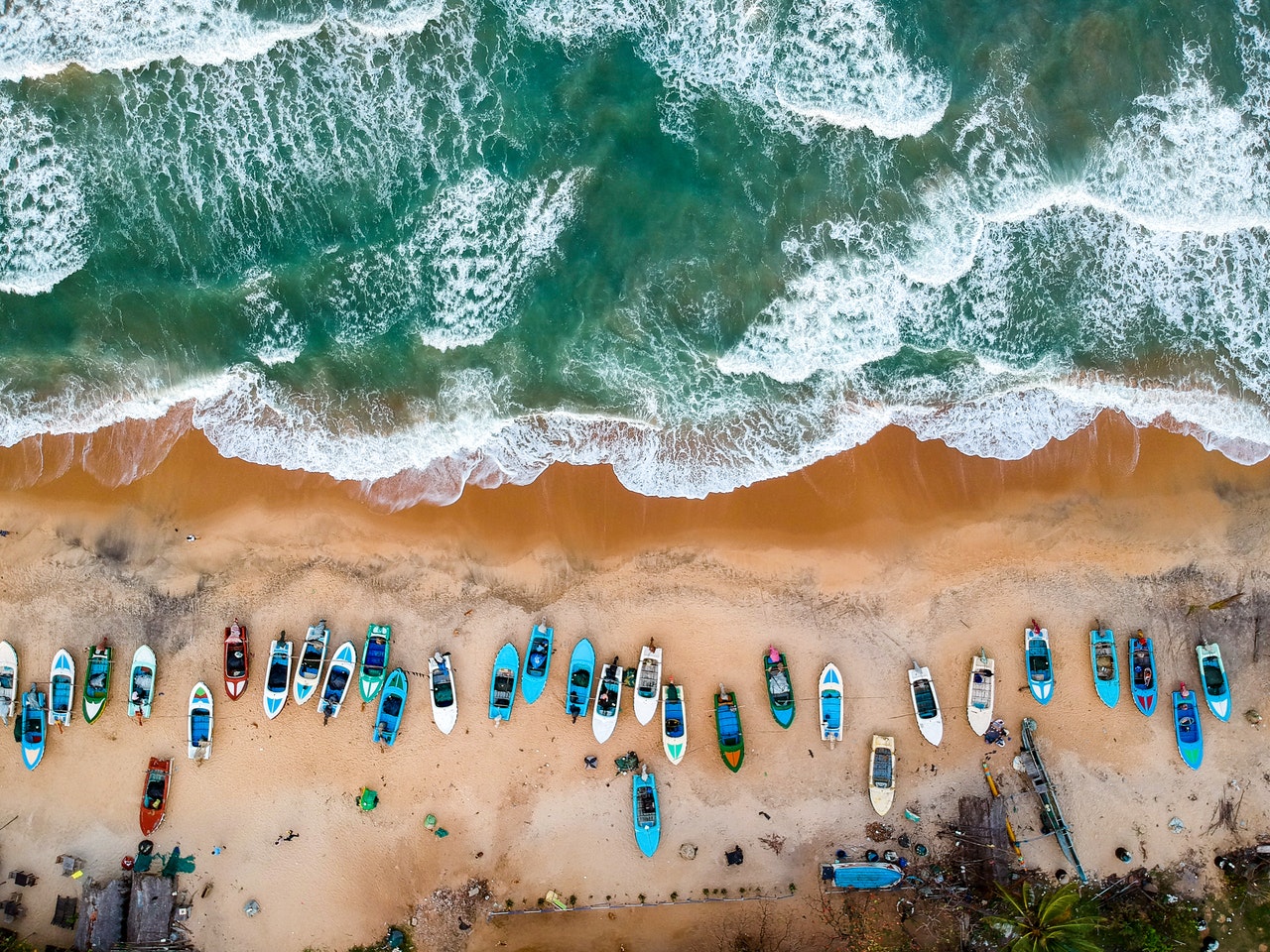European Tourism
One of the most obvious changes brought about by the pandemic has been the dramatic change in the continent’s holiday plans. Under lockdown no travel was possible at all, and the only holiday stories in the press were of those trapped abroad by local restrictions on movement and cancelled flights, or marooned in the now-pestilent hulks of Cruise ships, where at the beginning of the crisis, the Diamond Princess, with its 700 victims, represented half the known cases outside of mainland China. As the curve flattened and countries slowly released their citizens from confinement, borders reopened and travel between countries resumed, but the whole pattern had been drastically altered. Travel within European countries was restricted to national ‘covid corridors’ linking states with relatively low rates of infection, but even these narrow apertures had began to close by mid-August, leading to sudden scrambles home for British holidaymakers in France and Spain. The economic implications of the sudden collapse of international tourism have been huge. For European countries heavily dependent on tourist revenues such as Spain (14% of GDP), Greece (18%) and Italy (12%), the consequences are dire, for smaller states and regions such as Malta or the Canary Islands the sudden disappearance of tourist Euros reduced their income to near zero. Airlines are hanging on by a thread, laying off thousands of staff and either scrabbling for refinancing or, like Lufthansa, surviving only thanks to state subsidy. Coach companies and Tour operators such as Fleetway have already gone bust, Tui declared losses of £1.8 billion, and it is difficult to imagine anyone returning to cruise liners in the foreseeable future.
Last Thursday’s ‘pandemic perspectives’ debate considered the impact of these sudden changes, guided by two articles on the British and German’s new found fondness for ‘staycations’. Merry Somerset Webb in the FT, ‘Should Investors buy into Staycations?’ https://www.ft.com/content/94d6dfd1-d8a6-4ef8-aa9b-934c2e571e11 and ‘Charlemagne’ in The Economist, ‘Germans Learn to love the Staycation’. https://www.economist.com/europe/2020/08/08/germans-learn-to-love-the-staycation
David Christie, the group’s optimist, argued that, as Britons spent some £49 billion on overseas travel in 2019, the likelihood was that the vast majority of that spend would now stay in the UK, easing the depth of the post-covid recession. He also argued that it would led to a redistribution of wealth away from the capital (which has lost an enormous volume of incoming tourist revenue), to costal and rural areas, perhaps even rescuing run-down seaside resorts that had been in a state of decline since the 1970s when foreign travel came within the budget of ordinary working people.
As is common in our group, his optimistic bubble was rapidly burst by both Richard Kendall and Liam Knight, who argued that, whilst some of that money would indeed be spent in the UK, it would be considerably less than the amounts sent abroad, and that the benefits would largely accrue to the middle classes. Liam (I would suggest rightly) was particularly aggrieved by the Financial Times article, which broadly advised those with cash to spare to consider investing in a holiday-let property in British tourist hot-spots – noting the range of tax incentives available to do so. He pointed out the differential between wages and property prices in Devon (where he is currently domiciled) which effectively shut local people out of the housing market, and created ‘ghost-towns’ of second homers. He also noted that an ambivalent relationship between local residents and tourists (grateful for the income, resentful of the annual invasion) and been further exasperated under covid, with legitimate fears of contagion by incomers from the cities leading to a simmering undercurrent of discontent. Richard saw the benefits accruing to traditional middle-class destinations (Devon and Cornwall, The Cotswolds, The Lake District), but would not bring much benefit to the likes of Blackpool, Skegness or Broadstairs.
David contested the argument that this was a middle class phenomena, arguing that the sudden surge in purchases of camping equipment and the crowded beaches of Bournemouth were evidence of working-class holidaymakers relocating from Ayia Napa and Magaluf to the British coast and countryside. He also proffered the argument that this would result in a re-connection between the British people and the country of their birth and a renewed appreciation for the beauty of the land, following on from the signs of ‘hanami-like’ contemplation of the natural world recorded under lockdown.
This too was comfortably shot down by Liam, who later posted an article from the Guardian showing how holidaymakers new to camping had abandoned their litter and equipment in beauty spots as though they were attending a festival, and had set fires and uprooted rare species of plants in protected areas such as Dartmoor. https://www.theguardian.com/environment/2020/aug/14/uk-staycations-countryside-coast-visitors-trail-of-destruction
Not much reverence for nature visible there.
David’s attempt to argue that this was merely ‘teething troubles’ and would settle down when people were more familiar with rural codes of conduct, was met with a dignified silence.
Others, including Niall Gallen, argued that the switch to ‘staycations’ did not represent a lasting phenomena and that as soon as restrictions were lifted there would be a ‘race for the sun’ and the island would decant for the summer on its age-old patterns.
There was some debate about this, with perspectives guided by speculation of the length of the covid crisis. If, as some advanced, the appearance of second, third and more spikes, indicated that overseas travel was likely to be highly disrupted for several years, then new patterns of leisure and behaviour would have time to bed in, leading to lasting change. However, if restrictions were short-lived the group concluded that the new love of the staycation might be another of those peculiar phenomena which will be associated forever with the strange summer of 2020.
There was much more, but the purpose of these posts is merely to give a flavour and initiate debate – the group welcomes your comments/criticisms/fresh perspectives.

